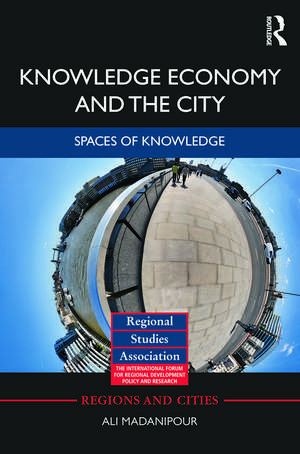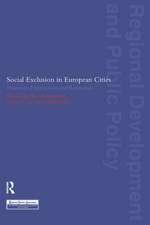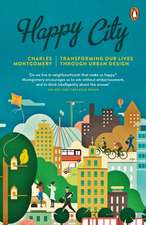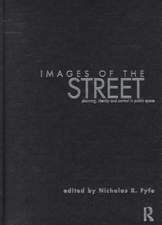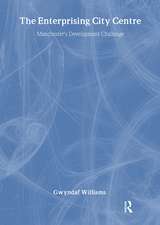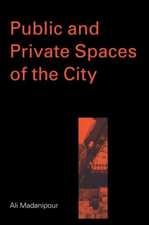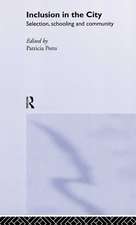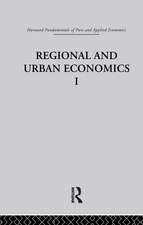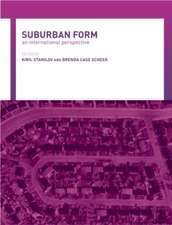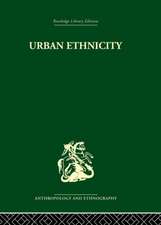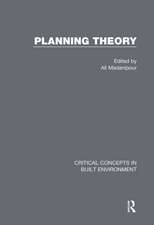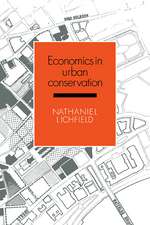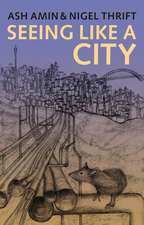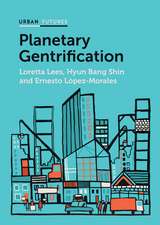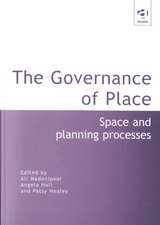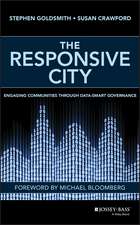Knowledge Economy and the City: Spaces of knowledge: Regions and Cities
Autor Ali Madanipouren Limba Engleză Paperback – 5 iul 2013
| Toate formatele și edițiile | Preț | Express |
|---|---|---|
| Paperback (1) | 480.11 lei 6-8 săpt. | |
| Taylor & Francis – 5 iul 2013 | 480.11 lei 6-8 săpt. | |
| Hardback (1) | 1043.65 lei 6-8 săpt. | |
| Taylor & Francis – 24 mai 2011 | 1043.65 lei 6-8 săpt. |
Din seria Regions and Cities
-
 Preț: 312.75 lei
Preț: 312.75 lei - 8%
 Preț: 382.90 lei
Preț: 382.90 lei -
 Preț: 311.26 lei
Preț: 311.26 lei -
 Preț: 345.86 lei
Preț: 345.86 lei -
 Preț: 313.19 lei
Preț: 313.19 lei -
 Preț: 310.65 lei
Preț: 310.65 lei -
 Preț: 593.16 lei
Preț: 593.16 lei - 18%
 Preț: 1051.87 lei
Preț: 1051.87 lei - 18%
 Preț: 1271.81 lei
Preț: 1271.81 lei - 18%
 Preț: 1041.26 lei
Preț: 1041.26 lei -
 Preț: 483.03 lei
Preț: 483.03 lei - 26%
 Preț: 765.59 lei
Preț: 765.59 lei -
 Preț: 424.98 lei
Preț: 424.98 lei -
 Preț: 280.26 lei
Preț: 280.26 lei - 18%
 Preț: 1154.15 lei
Preț: 1154.15 lei - 26%
 Preț: 763.61 lei
Preț: 763.61 lei - 15%
 Preț: 454.11 lei
Preț: 454.11 lei - 18%
 Preț: 1150.21 lei
Preț: 1150.21 lei - 15%
 Preț: 696.15 lei
Preț: 696.15 lei - 18%
 Preț: 1105.74 lei
Preț: 1105.74 lei -
 Preț: 414.56 lei
Preț: 414.56 lei - 18%
 Preț: 1318.84 lei
Preț: 1318.84 lei - 18%
 Preț: 984.99 lei
Preț: 984.99 lei - 18%
 Preț: 1041.60 lei
Preț: 1041.60 lei - 18%
 Preț: 940.71 lei
Preț: 940.71 lei - 15%
 Preț: 421.60 lei
Preț: 421.60 lei - 15%
 Preț: 707.96 lei
Preț: 707.96 lei - 15%
 Preț: 492.15 lei
Preț: 492.15 lei - 18%
 Preț: 1048.10 lei
Preț: 1048.10 lei - 18%
 Preț: 1045.03 lei
Preț: 1045.03 lei - 15%
 Preț: 500.19 lei
Preț: 500.19 lei - 18%
 Preț: 1047.76 lei
Preț: 1047.76 lei - 18%
 Preț: 1153.12 lei
Preț: 1153.12 lei - 18%
 Preț: 1047.08 lei
Preț: 1047.08 lei - 18%
 Preț: 1047.08 lei
Preț: 1047.08 lei - 18%
 Preț: 1046.75 lei
Preț: 1046.75 lei - 18%
 Preț: 697.76 lei
Preț: 697.76 lei -
 Preț: 475.93 lei
Preț: 475.93 lei - 18%
 Preț: 1040.92 lei
Preț: 1040.92 lei - 26%
 Preț: 192.18 lei
Preț: 192.18 lei - 18%
 Preț: 1152.09 lei
Preț: 1152.09 lei -
 Preț: 234.97 lei
Preț: 234.97 lei - 18%
 Preț: 1044.00 lei
Preț: 1044.00 lei
Preț: 480.11 lei
Nou
Puncte Express: 720
Preț estimativ în valută:
91.91€ • 94.53$ • 76.25£
91.91€ • 94.53$ • 76.25£
Carte tipărită la comandă
Livrare economică 19 februarie-05 martie
Preluare comenzi: 021 569.72.76
Specificații
ISBN-13: 9780415710084
ISBN-10: 0415710081
Pagini: 264
Ilustrații: 50 b/w images
Dimensiuni: 156 x 234 x 14 mm
Greutate: 0.43 kg
Ediția:1
Editura: Taylor & Francis
Colecția Routledge
Seria Regions and Cities
Locul publicării:Oxford, United Kingdom
ISBN-10: 0415710081
Pagini: 264
Ilustrații: 50 b/w images
Dimensiuni: 156 x 234 x 14 mm
Greutate: 0.43 kg
Ediția:1
Editura: Taylor & Francis
Colecția Routledge
Seria Regions and Cities
Locul publicării:Oxford, United Kingdom
Public țintă
Postgraduate and UndergraduateCuprins
1. Introduction Part 1: City and Economy 2. Reality, Dream or Rhetoric? 3. Economy, Society and Space Part 2: Changing Nature of Production 4. Intangible Products, Tangible Places 5. Knowledge as Productive Capacity 6. Digital Technology and the Mediated City 7. Global Organization of Production Part 3: Sites of Production and Consumption 8. Sites of Knowledge Production 9. Sites of Differentiated Consumption 10. Spaces of Knowledge? Bibliography
Descriere
This book explores the relationship between space and economy, the spatial expressions of the knowledge economy. The capitalist industrial economy produced its own space, which differed radically from its predecessor agrarian and mercantile economies. If a new knowledge-based economy is emerging, it is similarly expected to produce its own space to suit the new circumstances of production and consumption. If these spatial expressions do exist, even if in incomplete and partial forms, they are likely to be the model for the future of cities.
